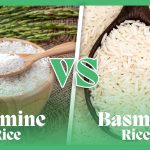Universally loved fizzy or carbonated drinks are non-alcoholic beverages that captivate our taste buds and are composed of carbonated water, sweeteners, corrosives, flavoring, and color.
They first came into being in the late 1800s, but it was not until 1886 when cola was introduced to the world that shook up the world’s beverage norms. It soon became everyone’s favorite drink and made way for more brands of such sweetened carbonated beverages.
The immense popularity of these drinks compelled the researchers to delve deeper into the nutritional content and health effects. To their surprise, they discovered several adverse effects associated with the overconsumption of these bubbly drinks. Let us go into the details and uncover some shocking yet already-known nutritional facts regarding carbonated beverages.

Nutrient composition:
| Nutrients (1 can or bottle 12 fl oz 370 g) | Amount |
|---|---|
| Water | 331 g |
| Energy | 155 kcal |
| Protein | 0 g |
| Fats | 0.925 g |
| Carbohydrates | 38.5 g |
| Dietary fiber | 0 g |
| Total sugars | 36.8 g |
| Calcium | 3.7 mg |
| Iron | 0.074 mg |
| Phosphorus | 33.3 mg |
| Potassium | 18.5 mg |
| Sodium | 11.1 mg |
| Zinc | 0.33 mg |
| Copper | 0.026 mg |
| Manganese | 0.011 mg |
| Selenium | 0.37 mg |
| Caffeine | 33.3 mg |
Energy:
1 can or bottle or 12 ounces of cola renders a total of 155 calories of energy.
Carbohydrates:
12 ounces of cola contains 38.5 grams of carbohydrates, all of which come from added sugars (36.8 g). The American Heart Association recommends a daily intake of 9 teaspoons (36 grams) of sugar for men and 6 teaspoons (25 grams) for women,
however, the daily sugar consumption of an average American is 17 grams, most of which is consumed from soft drinks followed by sweets. A single soda can contains 8 teaspoons of sugar which fulfills the daily recommended sugar intake in one sitting.
Proteins and fats:
Carbonated drinks are free from proteins and fats.
Micronutrients:
Although in small quantities, carbonated beverages contain some micronutrients like calcium, iron, phosphorus, potassium, sodium, zinc, and caffeine.
Health effects of carbonated drinks:
Gastrointestinal health:
Owing to the acidic pH of carbonated beverages, excess consumption may cause or worsen heartburn known as acidity or gastroesophageal reflux disease (GERD).
Dental health:
The excess consumption of carbonated drinks may affect dental health, particularly of teenagers. Some ingredients in these bubbly drinks that may promote dental erosion are phosphoric acid, sugar, caffeine, coloring, and seasoning agents.
The active ingredient phosphoric acid principally found in the drinks causes tooth erosion. The normal pH of these carbonated beverages is between 1.8-3.5 which is lower than the tooth enamel and may lead to increased enamel erosion. Furthermore, the high sugar content of these drinks may also contribute to developing tooth erosion.
Bone health:
Consumption of carbonated drinks may cause adverse effects on bones by reducing their bone mineral density. Caffeine, a vital component of these beverages may be associated with osteoporosis. Phosphorus in these sugary drinks in the form of phosphoric acid may be detrimental to bone health as excess dietary phosphorus inhibits calcium absorption. This calcium-phosphorus imbalance may reduce bone mineral accumulation and cause increased fracture risk (1).
Liver health:
Non-alcoholic fatty liver disease (NAFLD) has become a major problem affecting 20-30% of the adult population globally. Some risk factors associated with NAFLD are obesity, insulin resistance, hypertension, cardiovascular diseases, lifestyle, and dietary factors. The overconsumption of fructose and sucrose found in carbonated and soft drinks increases the likelihood of the risk factors that may lead to NAFLD (2).
Pancreas health:
Sugar-filled carbonated drinks can act as a catalyst for obesity and diabetes mellitus as both these disorders are risk factors for biliary tract cancer, both inside and outside the liver. Not much is known about the pathophysiology however, excess body weight and insulin resistance may open doors for the development of biliary tract cancers.
Cardiovascular health:
Excess consumption of sugar-sweetened carbonated beverages may cause fat accumulation elevating the risk of obesity which in turn increases the likelihood of developing cardiovascular diseases. Sugary drink consumption is also associated with elevated blood pressure, a contributing factor for cardiovascular diseases (1).
Type 2 diabetes:
Carbonated beverages and type 2 diabetes are directly proportional to each other owing to the high content of sugar in them. These beverages are composed of simple sugars that cause a sudden spike in the blood sugar level thereby increasing the risk of insulin resistance in the long term.
Weight gain:
Obesity has become a global health problem in the past decade. According to the World Health Organization (WHO), a maximum of 5% of total energy per day should come from free sugars. The prevalence of obesity is increasing at an alarmingly high rate that in the USA, one out of three children and two out of three adults is overweight and obese.
A major contributor to obesity? Sugary drinks!
Carbonated or soft drink consumption is highly associated with weight gain and obesity. Consumption of these drinks with high sugar leads to excess energy intake and promotes weight gain. Moreover, these beverages reduce satiety levels and result in incomplete energy intake followed by more energy consumption subsequently leading to weight gain.
How to avoid carbonated drinks?
Cutting back on sugary and fizzy drinks can be a challenge but it’s not impossible if one puts his mind on it. Following are some of the alternative beverages to sodas.
Sparkling water:
Plenty of healthy alternative drinks are available in the market, the best of which is plain old water. But if you are looking for carbonation, sparkling water may be your first option. If the sparkling water seems bland, you can choose the many flavored ones.
Flavor infused water:
Flavour-infused water is hype nowadays but it also contains added sugar and artificial flavors. The best way to enjoy flavour-infused water is to add natural flavourings like lemons, oranges, watermelon, cucumber, strawberries, mint, or limes. Another option is to chop up fruits in an ice-cube tray, add water, freeze, and add the cubes into the water for an instant flavor.
Green tea:
Another great option is green tea, whether hot or cold depending on the weather. Research suggests a wide array of health benefits associated with green tea such as diabetes, heart disease, oxidative stress, cancer, obesity, and liver diseases.
Lemon-lime soda:
A healthier option for citrus sodas is lemon-lime soda made at home. Take sparkling water and add lemon and lime with a pinch of stevia, a low-calorie and low-carbohydrate sweetener.
Fruit and veggie juices:
Fruit and veggie juices offer the benefits of these food groups with natural sugars. Toss your favorite veggies or fruits into the juicer, blend them, and enjoy a glass of fresh and healthy juice.
Coconut water:
Unsweetened coconut water is a great option to try as it is low in sugar and high in essential vitamins and minerals. Furthermore, coconut water is home to electrolytes such as potassium, magnesium, and sodium and can replenish the deficiency of these electrolytes lost in vigorous physical activity.
Kombucha:
Kombucha, a fermented fizzy tea can satisfy your craving for a carbonated drink along with providing you with many health benefits. The fermentation process produces gut-healthy bacteria that render kombucha as a probiotic.
Pregnant and lactating women or individuals with serious illnesses undergoing chemotherapy or are on immune suppressant drugs may want to avoid kombucha.
Overall, while carbonated drinks may provide a refreshing taste, it’s important to be mindful while consuming them. Despite their immense popularity, the key to preventing all the adverse effects is to limit their consumption as the sugars, flavorings, and acids in these drinks are extremely detrimental to health. Going for healthier alternatives like flavored water, sparkling water, and kombuchas to name a few, could be the way to minimize their consumption and protect our overall health and well-being.









